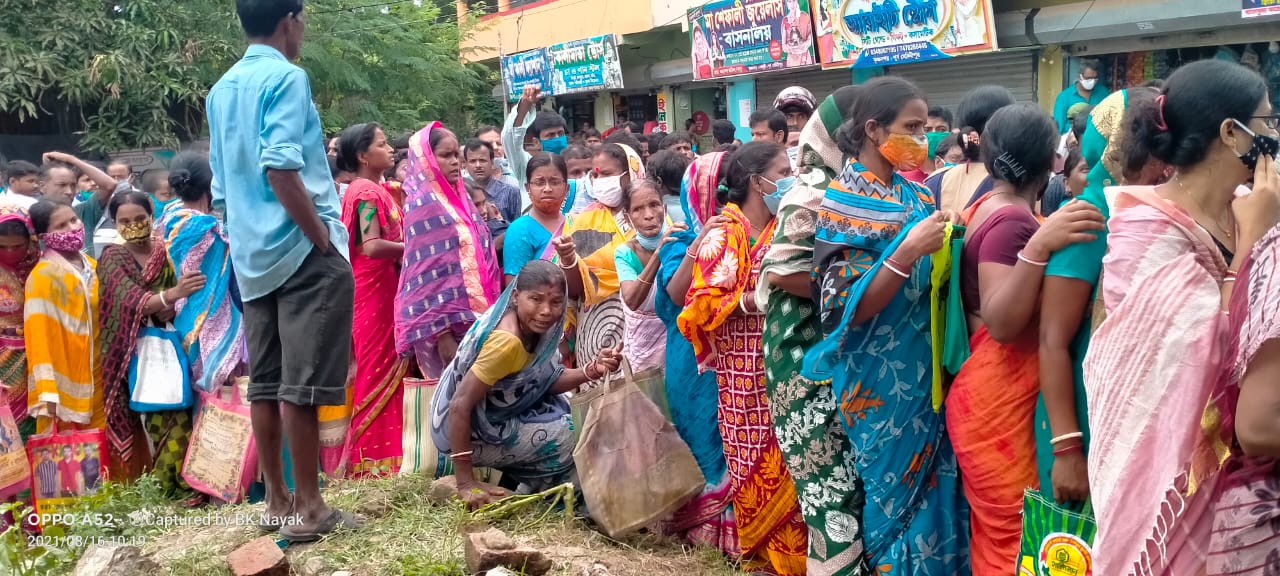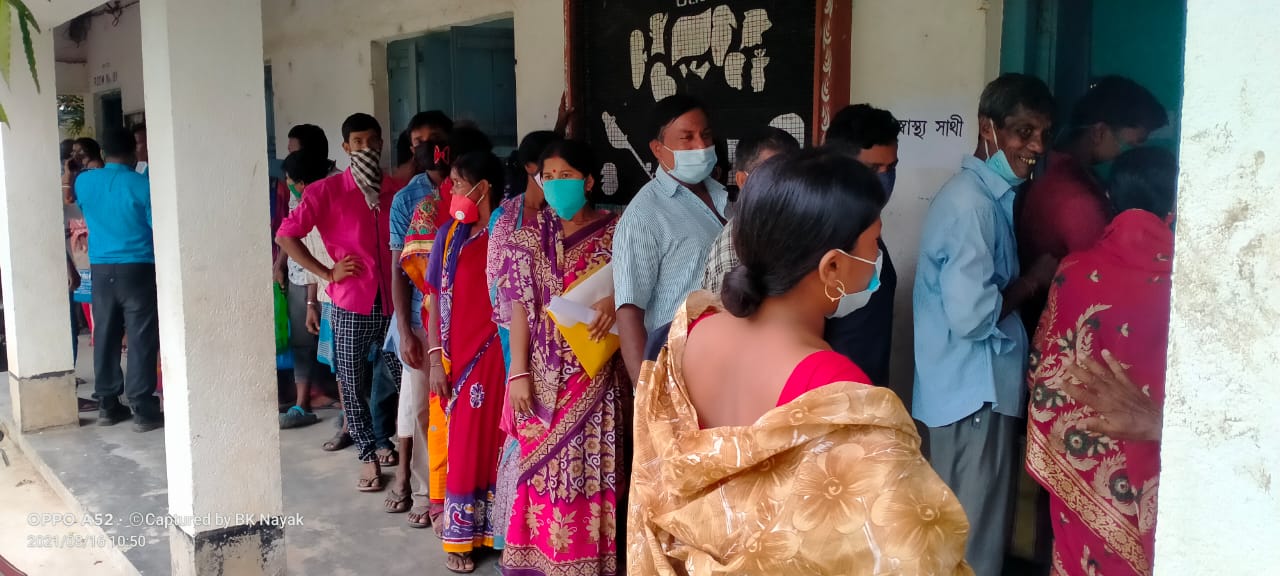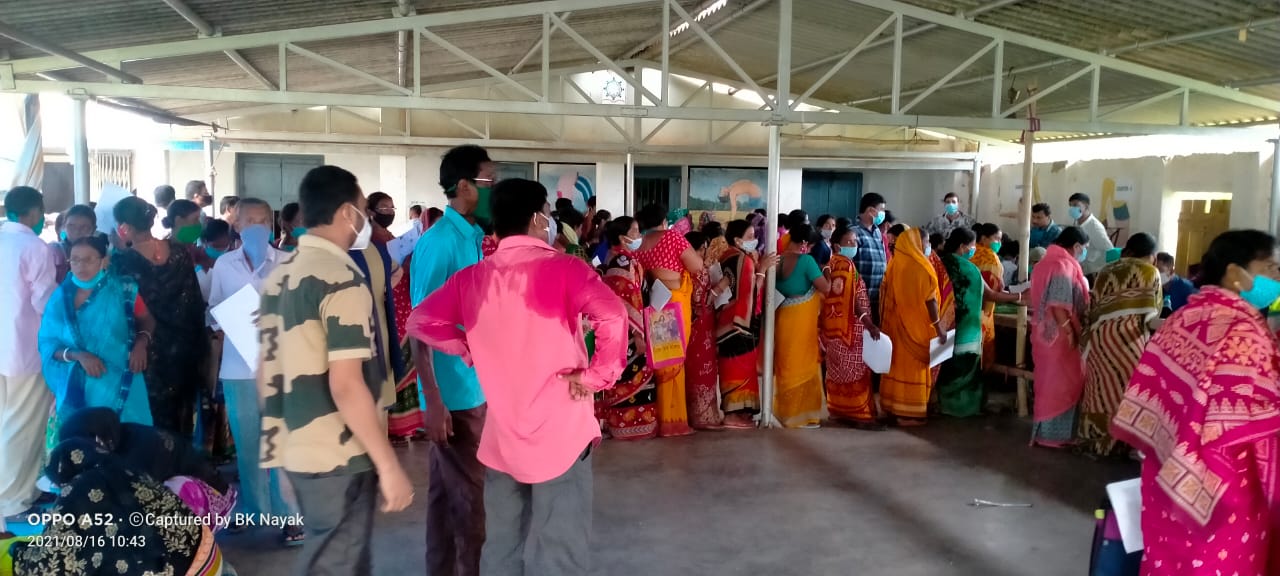
West Bengal’s cash doleout scheme reveals economic impact of COVID
Thousands of middle-class women are lining up at government camps as pandemic lays waste to the state’s economy.

Namita Roy had never thought that one day she would have to jostle for a monthly dole of ₹500. She had a decent income working at a shopping mall in Kolkata.
Now here she was, queued up at a ‘Duare Sarkar’ camp in Kolkata’s Girish Park, teeming with thousands of women shoving and pushing each other to apply for a cash benefit scheme that will provide her ₹500 per month.
A few meters away, Rupa Pramanik was trying to push her way to the counter to fill the application. Her husband is a chef at a north Kolkata restaurant.
Like Namita and Rupa, thousands of women from middle-class backgrounds are lining up at Duare Sarkar (Government at Doorstep) camps across the state.
These month-long camps, functioning since August 16, have been set up by the Mamata Banerjee-led West Bengal government to accept applications for welfare schemes and to extend other government services such as issuance of caste certificates.

The success of the first phase of the initiative, launched ahead of the assembly election earlier this year, largely contributed to the TMC’s sweeping victory.
The camps are drawing an even bigger crowd this time. At the time of writing – Tuesday August 24 – more than 1.20 crore people had thronged the camps in various parts of the state.
Also read: Why your morning cuppa of Darjeeling tea may not be the real thing
Official sources said the most-sought after scheme this year is ‘Lakhir Bhandar’ (Laxmi’s Treasure Trove). It offers ₹500 monthly income support to women aged between 25 and 60 of general caste families and ₹1,000 to women heads of the same age group of SC/ST families.
The amounts account for 10 to 20 per cent of the monthly expenditure, respectively, of two categories of beneficiaries – the monthly average consumption expenditure of a household in Bengal is ₹5,249.
More than 60 per cent of the applications are for the Lakhir Bhandar scheme, officials said. On an average 10 lakh applications are being received daily, they added.
Seeing the rush, Chief Minister Mamata Banerjee appealed to women not to panic, promising that the government will extend the last date for enrolment.
Initially the government had estimated that 1.6 crore families would be covered under the scheme. Accordingly, a budgetary allocation of ₹12,900 crore was made.

The sources said the number of applications will overshoot the estimate. “We are now expecting more than 2 crore applications under the scheme as many women from middle-class families too are applying for the cash benefit,” said an official from the Department of Women and Child Development and Social Welfare.
He said the response clearly revealed the extent of economic distress caused by the pandemic to even middle-class families, who would otherwise not have taken the trouble to beeline to get ₹500 per month.
Also read: How and why TMC is trying to make inroads in Tripura
The official, however, said that there would be no budgetary shortfall as the government had kept adequate cushion. As per the primary estimate the annual burden of the scheme on the exchequer was calculated at ₹11,000 core. But the budgetary outlay for the scheme was ₹12,900 crore.
Namita said that due to the pandemic she had to take a drastic pay cut. “Under the present circumstances, any monetary benefit will be of great help,” she said.
Rupa agreed, saying her husband has had no steady income since September last year. Every little bit counts, she added.


